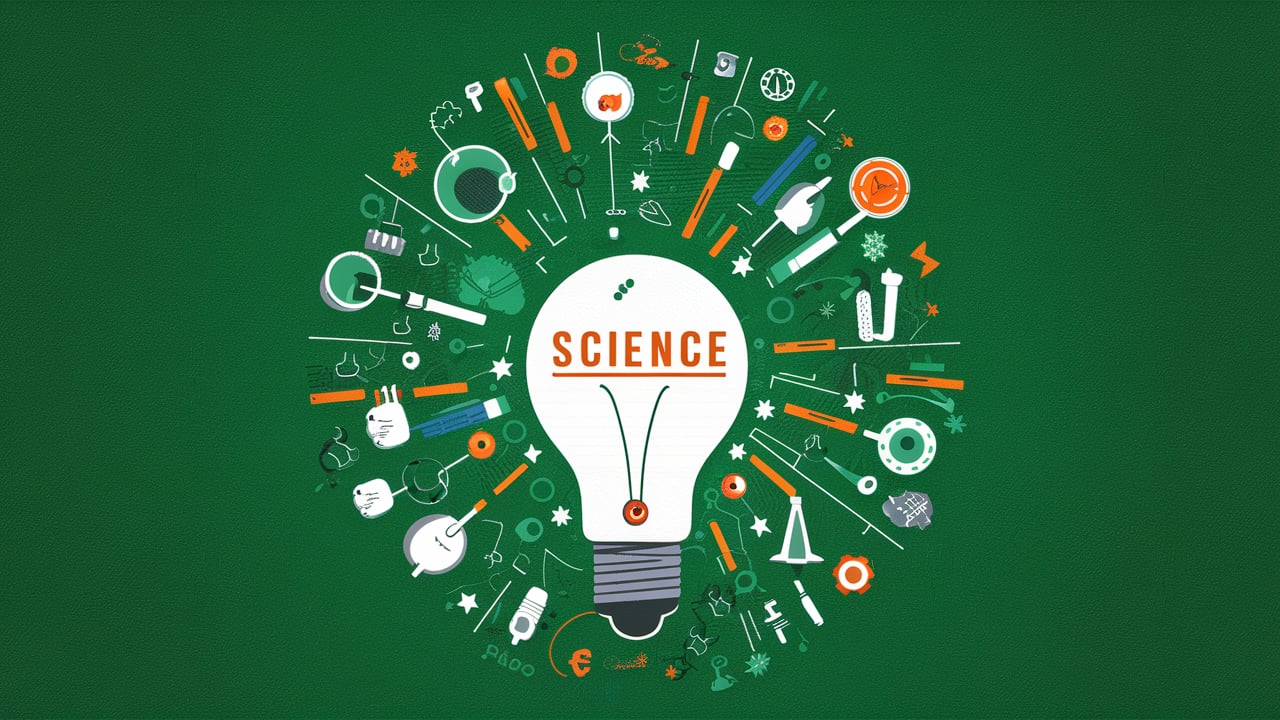
Importance of Science in everyday
On 1st April, a grade 4 student very eagerly walked up the stairs and reached her new class. It was the first day of the new academic session and she was excited to meet her classmates and new teachers. What interested her the most were the new academic books she would receive. The first book that was kept on her desk was named ‘Science’. It caught her attention and she asked her teacher, Ma’am, “What is Science? “ The teacher, very confidently said “Science is the pursuit and application of knowledge and understanding of the natural and social world, using a systematic methodology based on evidence.” On hearing this definition, the student was puzzled and her teacher decided to answer again in a simple language: “Science involves understanding the world by watching, listening, observing, and recording. It can be called one's curiosity in thoughtful action about the world and how it behaves”. Wow! The whole class exclaimed, this is so much easier to understand.
This explanation of science by the teacher made every child inquisitive. One of her students immediately asked, Ma’am, what is the importance of science in our day-to-day life? To which the teacher replied, “The importance of science is highlighted in the way it influences most aspects of everyday life, including food, energy, medicine, transportation, leisure activities and more”. She further added many examples from daily life of a child, to make it more relatable to them and said, “Almost everything that makes our daily life easier are the wonders of modern science. Indeed, there are far too many to be counted. The moment we get out of bed we apply paste on the toothbrush, both of which are provided by science. With the help of things like microwaves, fans, smartphones, and cars, science and technology have made cooking, sleeping, communication and transportation easier and faster. In fact, even baking necessitates a rudimentary understanding of science, while baking appliances such as ovens and microwaves are scientific endowments”.
The above conversation between a teacher and her students, highlights the teaching-learning approach adopted at The Obris. We can't deny the fact that science is indispensable in today's world and technological inventions over the years have made our modern lives more sustainable. Consider scientific wonders of the 20th century alone: air travel, automobiles, computers, television, robotics and more. It’s difficult to imagine a world without these, and the ways our lives have been impacted.
Orbis recognizes this importance of science in everyday life and therefore provides an education that is a potent blend of conventional and modern ways of teaching-learning. Mentors at Orbis integrate science and technology seamlessly into the curriculum by using smart boards for digital content and browsing. Robotics training is introduced for students of classes 4 to 8 which equips them to use motors and sensors, and provides a holistic empowerment to students by integrating STEM learning approaches to solve real problems and develop core life skills. Learners at secondary level are given an insight into a skill subject 'Artificial Intelligence', which is an extensive curriculum consisting of hands-on activities like Google experiments, teachable machines, smart homes etc, designed by CBSE in collaboration with Intel.
As Orbians, we acknowledge that starting from the technology we use to communicate and share information with other people around the globe, clean our clothes, prepare our meals, move from one place to another, and in all everyday items like floorboards, door locks and furniture, is the role of science. However, it is also a fact that we have now started taking these everyday items for granted since it seems less impressive to us than self-driving cars or 3D printing. So, to end, here is a thought “Science is omnipresent and omnipotent in every aspect of our lives. It is more like a mystery that invites anyone who is interested to become an explorer and join in the fun of.
Archives
- Dec 2020 (1)
- Jan 2021 (4)
- Mar 2021 (2)
- Apr 2021 (3)
- May 2021 (3)
- Jun 2021 (1)
- Jul 2021 (2)
- Aug 2021 (3)
- May 2022 (1)
- Aug 2022 (2)
- Sep 2022 (1)
- Oct 2022 (2)
- Apr 2023 (2)
- Jul 2023 (1)
- Aug 2023 (2)
- Sep 2023 (2)
- Dec 2023 (3)
- Jan 2024 (2)
- Feb 2024 (5)
- Mar 2024 (4)
- Apr 2024 (4)
- May 2024 (3)
- Jun 2024 (3)
- Jul 2024 (4)
- Aug 2024 (4)
- Sep 2024 (4)
- Oct 2024 (5)
- Nov 2024 (4)
- Dec 2024 (4)
- Jan 2025 (3)
- Feb 2025 (3)
- Mar 2025 (3)
- Apr 2025 (4)
- May 2025 (3)
- Jun 2025 (4)
- Jul 2025 (4)
- Aug 2025 (3)
- Sep 2025 (4)
- Oct 2025 (3)
- Nov 2025 (4)
- Dec 2025 (3)